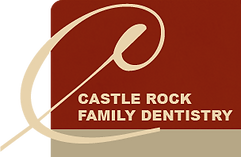How to lose friends and alienate people: Dental Edition

I’ve been meaning to talk to you about this for a long time. As a friend and a dental professional, the fact that I have waited this long means I should probably lose both positions. Even now I’m taking the cowards path by presenting this via a blog post rather than face-to-face. Of course, this particular malady does tend to make a tête-à-tête a little less pleasant. The problem is the people in your life are suffering. Whether you know and don’t care or by some cosmic chance you remain painfully unaware, it’s time to make a change. I can’t promise things will get better overnight, but with some effort we can get through this…you have bad breath.
We’ve all been there right? A seemingly harmless conversation being reduced to using a bendable straw to get air from another part of the room. Maybe you tried the “I’m not out of the woods with this contagious influenza, the doctor recommended this full-faced gas mask wherever I go.” A classic. There is no doubt about it; this is a touchy subject. A wrong foot here, a misspoken word there, can lead to an epic altercation. For this reason, I’ve decided to do you all a favor. I will lay out the hard truth and you can let me take all the heat. I’m a dentist. I’m not well liked anyway. I’ll take a shot for the team. To throw your stinky friend off the scent (no pun intended) of what you are up to, I’d suggest saying something like: “Boy, Dr. Reilly has a great blog. I’d start with the most recent and work your way back!” Or, “He’s done it again! Knocked another one out of the park.” What, too self-aggrandizing?!? Look, do you want my help or not?
What causes this diabolical social barrier?
Bad breath, or halitosis, can be rooted in many different things starting in the mouth itself down to internal sources. Most commonly the culprit of halitosis originates in the gums and tongue. As bacterial waste, decayed food particles, and other debris accumulate due to insufficient oral hygiene practices, bad odor abounds. The decay and debris work in an evil alliance to produce a chemical that can take the paint off a boat.
Other sources of halitosis include systemic medical issues including infection, kidney failure, diabetes, and liver malfunction. Stress, dieting, age, and snoring (yeah I’ve been meaning to talk to you about this one as well) can also contribute.
Even the healthiest and hygiene conscious among us is likely to “breathe fire” first thing in the morning. During the day, those of us with adequate saliva flow have bacteria and food debris washed away and with it malodor. Saliva production decreases immensely as we sleep which allows bacteria to do its work all night long. Brushing your teeth and eating breakfast are a great way to combat morning breath. Halitosis has also been linked to hunger and fasting, so even with brushing, skipping breakfast can lead to bad breath.
Are there any foods I should avoid?
Well, that’s all a matter of perspective. It may be that a good French onion soup cannot be passed up. Just keep in mind that your presence may be more easily avoided. Foods like onion and garlic, and drinks like coffee can be detected on a person’s breath for up to 72 hours. That can be a lot of nights on the couch. Diets low in carbohydrates can also increase the chance of halitosis.
Wow, this is worse than I thought. How can I get this bad breath under control?
I’m sure it will come as a big surprise that regular dental check-ups are important. Periodontal disease is a major player in the bad breath game and keeping it in check often requires 3-4 month maintenance. Even in the absence of periodontal disease, the build-up of plaque and tartar can be bad breath contributors.
Your home hygiene is very important when it comes to controlling halitosis. Besides brushing and flossing twice a day, cleaning the tongue with either your toothbrush or tongue scraper (sounds like something that would be used as an “enhanced interrogation” technique) to remove bacteria that builds up there. Mouth rinses can help but most provide only temporary relief.
Drinking lots of water and chewing sugar-free gum can also help. We dentists prefer xylitol gum because it can provide moderate dental benefits beyond providing relief for family and friends. Those who use dentures or other appliances (retainers, orthodontic trays, etc) should keep appliances clean and free of debris to control odors.
Well, we’ve been through a lot. Just know that if we didn’t care about you, we wouldn’t even bring it up. Go ahead and call your dentist and let’s get a handle on this. Don’t make me get out that tongue scraper!!























